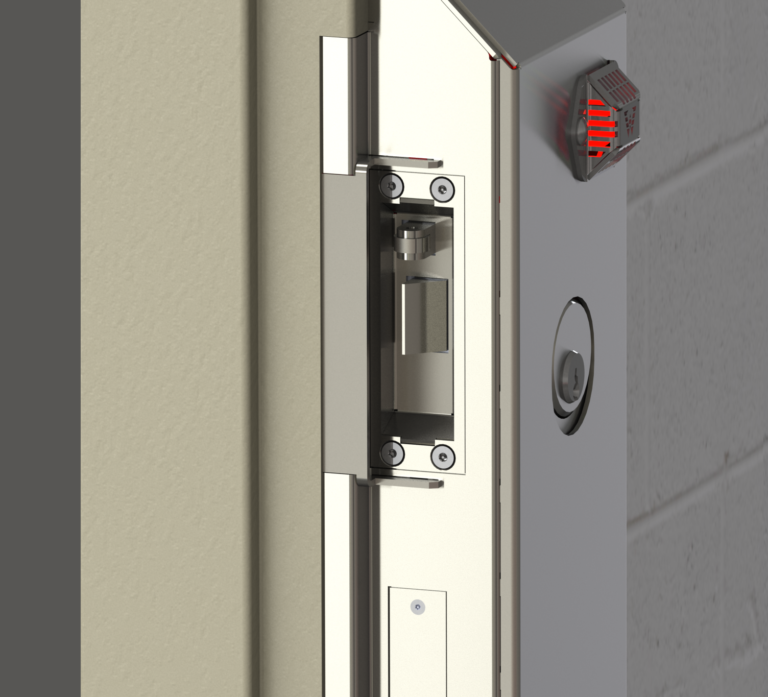TYC Cancels Contract with Private Facility
AUSTIN, Texas — Texas Youth Commission officials ordered the transfer of nearly 200 offenders to state-run facilities after it cancelled its $8 million annual contract with the privately run Coke County Juvenile Justice Center.
The action was prompted by unsafe and unsanitary conditions at the state’s largest private juvenile facility, which is operated by the Florida-based GEO Corporation.
A TYC report, which called conditions at the facility deplorable, noted an overwhelming sense of fear and intimidation; an over-reliance on the use of pepper spray; insect-infested food, bedding and common areas; and dark and malodorous security cells.
The TYC employs four full-time quality-assurance staff members to monitor conditions and operations at the GEO facility, which received generally high performance scores in both announced and unannounced inspections during the past five years. The Coke County center was named the TYC’s facility of the year in 1999 and 2005.
The facility was evaluated at almost 100 percent compliance, passing 28 of the 29 primary assessment criteria, after its last review in February, officials say. Some of the problems noted, included a malodorous dorm sewer backup and inmate complaints of laundered clothes still being dirty and damp.
The Department of Public Safety joined the inspector general’s office of the TYC in the investigation. The state attorney general’s office and state auditor could become involved following reports of possible financial irregularities and reports of inmates being prevented from filing complaints and grievances, officials say.
In the wake of the report, the TYC executive director and its director of corrections carried out several unannounced visits to the Coke County center, which revealed additional programming and operational problems. After informing Gov. Rick Perry of the situation, TYC officials cancelled the contract with GEO and immediately ordered the transfer of inmates to the state-run facility in McLennan County, officials say.
The GEO Corporation has operated the Coke County facility, which houses juveniles ranging in age from 13 to 21 years, since 2003 when the company purchased the institutional division of the Florida-based Wackenhut Corporation.
The facility has a checkered history with reports of neglect and physical and sexual abuse of juvenile detainees. In 2006, a 19-year-old inmate was found hanged after complaining of feeling unsafe, while in March 2007 it came to light that a guard at the facility was a convicted sex offender.
The Coke County issues are the latest in a series of problems and controversy that has plagued the state’s juvenile justice system. Earlier this year, the TYC was placed in state conservatorship amid a comprehensive investigation into a sex-abuse scandal.
A report released in September by the blue-ribbon panel commissioned in the wake of that investigation to overhaul Texas ‘ entire juvenile justice system recommended sweeping changes to how the state should deal with youth offenders.
The 56-page report calls for a fundamental shift to a system of small, regional centers in place of the current large, centralized state-run facilities. The panel, which was composed of more than 20 national juvenile justice experts, also recommended a greater emphasis on the treatment and rehabilitation of offenders instead of punishment.
Calling for better management of violent and difficult offenders, better staff training and improved programs, the panel recommended that more low-level offenders be sentenced to county probation programs instead of state detention centers and that more offenders should be diverted to community-based programs, where their chances for rehabilitation rather than reoffending would be increased.
The panel also recommended that offenders between 14 and 19 years old should only serve their sentences at youth facilities, and called for the strengthening of preventative measures and programs focused on at-risk youth.
In other news, Harris County officials are actively lobbying the TYC to build a new $25 million youth detention facility in the Houston area.
Texas lawmakers set aside $25 million this year to build a new TYC facility in one of the state’s large metropolitan areas and Harris County officials say that the facility should be located in their jurisdiction since local offenders constitute more than 25 percent of TYC detainees.
The county already operates detention facilities in Atascocita, 20 miles northeast of Houston, and officials have earmarked nearby land could be used for the TYC facility.
However, offenders from Harris County would not be guaranteed placement at the proposed facility because the TYC generally places youths in facilities based on their treatment needs and programs, such as mental health or sex offender services, offered at different facilities throughout the system.
The closest TYC detention facility to Houston is located about 100 miles northwest of the city. Harris County officials claim detaining local offenders so far from home undermines their rehabilitation and creates an unnecessary hardship for family members.






